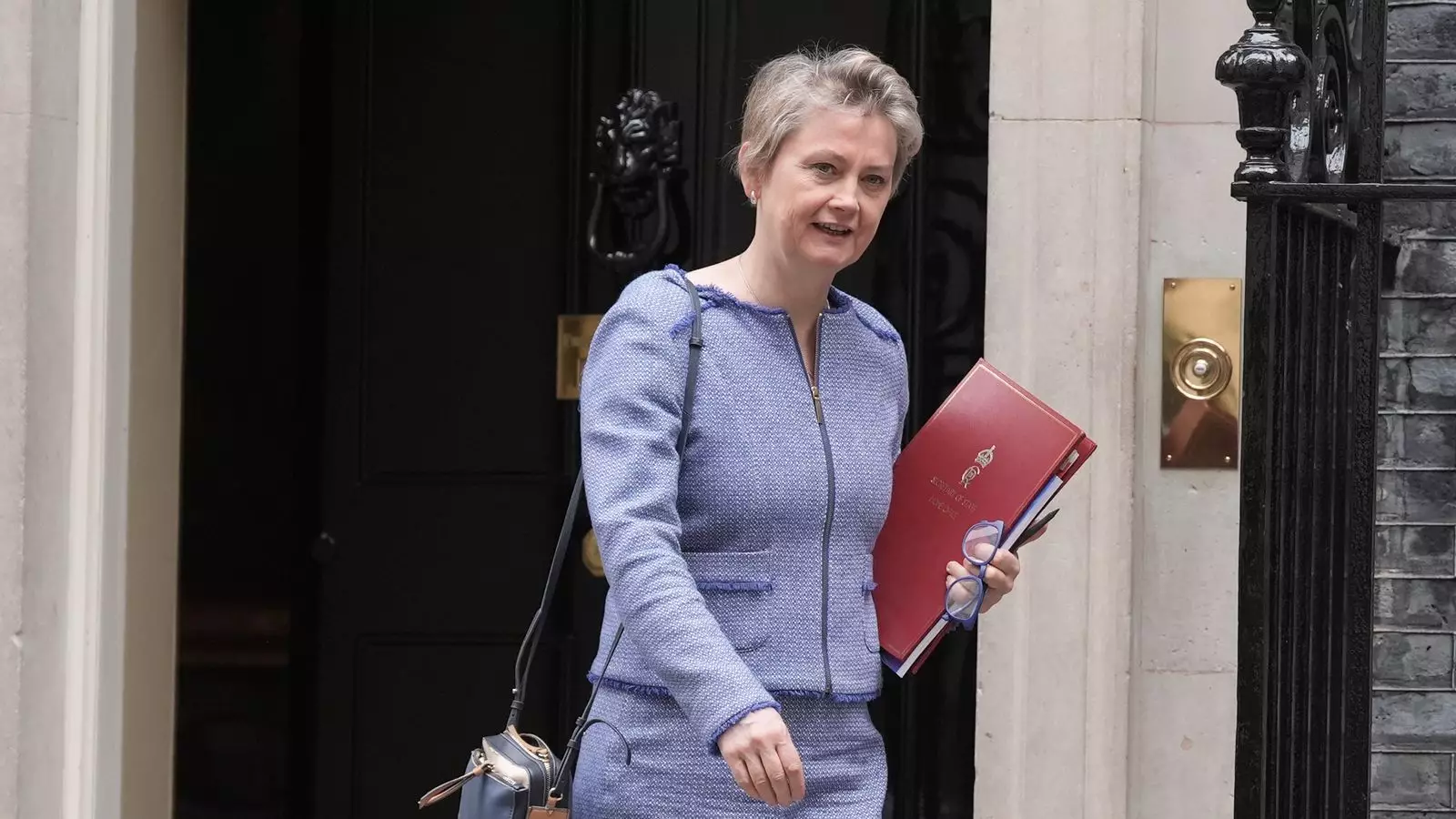The recent announcement of the “one in, one out” migration deal between the UK and France is emblematic of a government desperately grasping for control over an increasingly unmanageable crisis. It sounds promising—returning migrants crossing the Channel in exchange for legal entry routes—but the truth is, it’s a fragile shell game that reveals more about the UK’s inability to address its migration issues than about any genuine solution. The Home Secretary’s admission that the exact number of migrants to be returned remains undecided exposes the deal as a mere pilot project, not a definitive policy. It’s a symbolic gesture that aspiring to real progress, but in reality, it’s a temporary patch on a deeply rooted problem.
Operation “one in, one out” hinges on ambiguity, and this lack of concrete numbers underscores a fundamental flaw: the government’s failure to develop a clear, enforceable plan. Without definitive targets, the initiative resembles a bureaucratic smoke screen, designed more to appease political pressure than to deliver lasting change. This perpetuates a cycle of reactive policy-making rather than strategic planning. Relying on uncertain figures and vague commitments borders on neglect—a dangerous approach when dealing with a crisis created by systemic failures long before the current government took office.
The Mirage of Legal and Diplomatic Feasibility
Another critical problem lies in the legal and diplomatic foundations of this deal. While officials proudly declare that they have “done a lot of legal work,” the reality is that the legal landscape remains highly uncertain. The UK’s departure from the EU severed the Dublin Agreement, complicating efforts to return asylum seekers efficiently. Without that framework, the UK finds itself in a legal grey area, vulnerable to challenges and accusations of rights violations. Promises of a “robust” legal position seem more like rhetoric than reality, especially as courts and international bodies scrutinize these agreements.
Diplomatically, Macron’s comments about Brexit creating an “incentive” for migrants to cross seem to shift blame rather than offer a genuine solution. While Brexit undoubtedly reshaped the UK’s ability to manage migration, the notion that it’s solely responsible for the surge ignores broader factors: global crises, conflicts, poverty, and climate change. Fixating on blame, rather than tackling the root causes, undermines the moral authority needed to craft effective policies. The UK’s focus on returning migrants without addressing the underlying drivers of displacement results in a shallow approach that merely shifts the problem elsewhere.
The False Narrative of British Sovereignty and the ‘Lies’ of Britain’s Migration Discourse
Macron’s assertion that Britain was “sold a lie” about migration exposes a reckoning with national rhetoric that has fueled xenophobia and political scapegoating. The narrative that Brexit destroyed Britain’s ability to control its borders is a simplification that overlooks the complex realities of international migration. It also masks true policy failures—failures of investment, coordination, and humane management. The government’s avoidance of admitting that UK policies and global crises contribute to the problem reflects a deeper denial that no border enforcement policy can wholly eradicate irregular migration.
Instead of engaging in honest debates about the ethical and practical challenges of managing migration, political figures resort to accusations about criminal gangs “weaponizing” the situation. Such language dehumanizes asylum seekers, portraying them as pawns in a criminal enterprise rather than victims seeking safety. This dangerous narrative feeds into anti-immigrant sentiment, further marginalizing vulnerable populations and obstructing the development of comprehensive, humane solutions. The focus on law enforcement and deportation, without addressing the causes that compel vulnerable people to risk their lives crossing dangerous waters, reveals a fundamental failure of moral leadership.
The Flawed Hope of Deterrence and Short-Term Fixes
Ultimately, the proposed deal hinges on the hope that returning migrants will serve as a deterrent. But history and research show that harsh policies and deterrence strategies rarely work—they merely displace the problem, often worsening the humanitarian crisis. If the UK’s goal is to genuinely reduce crossings, it needs more than misguided slogans and undefined quotas. It requires a strategic overhaul—a recognition that safe, legal pathways and international cooperation are the only sustainable solutions.
This policy, presented as a breakthrough, is more akin to a superficial bandage on a bleeding wound. It ignores the necessity of addressing global inequalities, climate change, and geopolitical conflicts that drive migration in the first place. The UK’s focus on controlling borders should shift toward sharing responsibilities, investing in global aid, and reforming its asylum system to be fair and humane. Without these fundamental changes, the “one in, one out” scheme remains a symbolic gesture—ineffective, fleeting, and ultimately, a failure to confront the root causes that make migration inevitable.

Leave a Reply